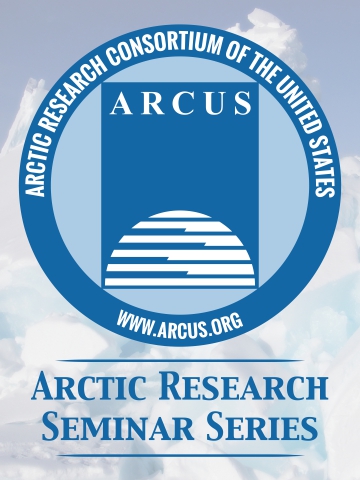
ARCUS invites registration for the next Arctic Research Seminar featuring Dr. Robert Holzworth, professor of Earth and Space Science and Adjunct professor of Physics, titled "Lightning in the Arctic" will be held via Zoom.
Registration is required for this event. Instructions for accessing the webinar will be sent to registrants prior to the event.
Abstract
The World Wide Lightning Location Network (WWLLN) data on global lightning are used to investigate the increase of total lightning strokes at Arctic latitudes. We use the summertime data from June, July, and August (JJA) which average >200,000 strokes each year above 65oN for the years 2010 – 2020. We minimize the possible influence of WWLLN network detection efficiency increases by normalizing our results to the total global strokes during northern summer each year.
The ratio of strokes occurring above a given latitude, compared to total global strokes, increases with time, indicating that the Arctic is becoming more influenced by lightning. We compare the increasing fraction of strokes with the NOAA global temperature anomaly, and find that the fraction of strokes above 65oN to total global strokes increases linearly with the temperature anomaly, and grew by a factor of three as the anomaly increased from 0.65 to 0.95 degrees C.
Speaker Details
Dr. Holzworth has been a professor of Earth and Space Science and Adjunct professor of Physics since 1982. He did his undergraduate work at the University of Colorado majoring in physics and math, and received his PhD in physics from the University of California Berkeley in 1977. He was a member of the technical staff at The Aerospace Corporation, Los Angeles for four years before moving to the University of Washington where he manages an active teaching and research program in atmospheric electrodynamics and space plasma physics. Dr. Holzworth has published over 150 peer reviewed papers. As an experimental physicist he has been the principal investigator for many high-altitude balloon experiments, several rocket payloads, and a few satellite payloads. He is the director of the World Wide Lightning Location Network (WWLLN), a global, ground based, lightning location network. In the past few years, Dr. Holzworth has been the Principal Investigator for research supported by the National Science Foundation, NASA, the Air Force Office of Scientific Research (AFOSR), the Naval Research Laboratory, the Defense Advanced Research Projects Agency (DARPA), NOAA, and the European Commission. He recently delivered a vector electric field instrument to NASA for an NRL rocket payload to study ionospheric plasma waves (launch planned summer 2022), and his instrument on the Air Force/NASA Communications/Navigation Outage Forecasting System satellite recently re-entered after operating for over eight years. Dr. Holzworth finished his term as Chair of the Council of Institutions of the University Space Research Association in 2016 and remains the representative from the University of Washington to the Universities Space Research Association.
